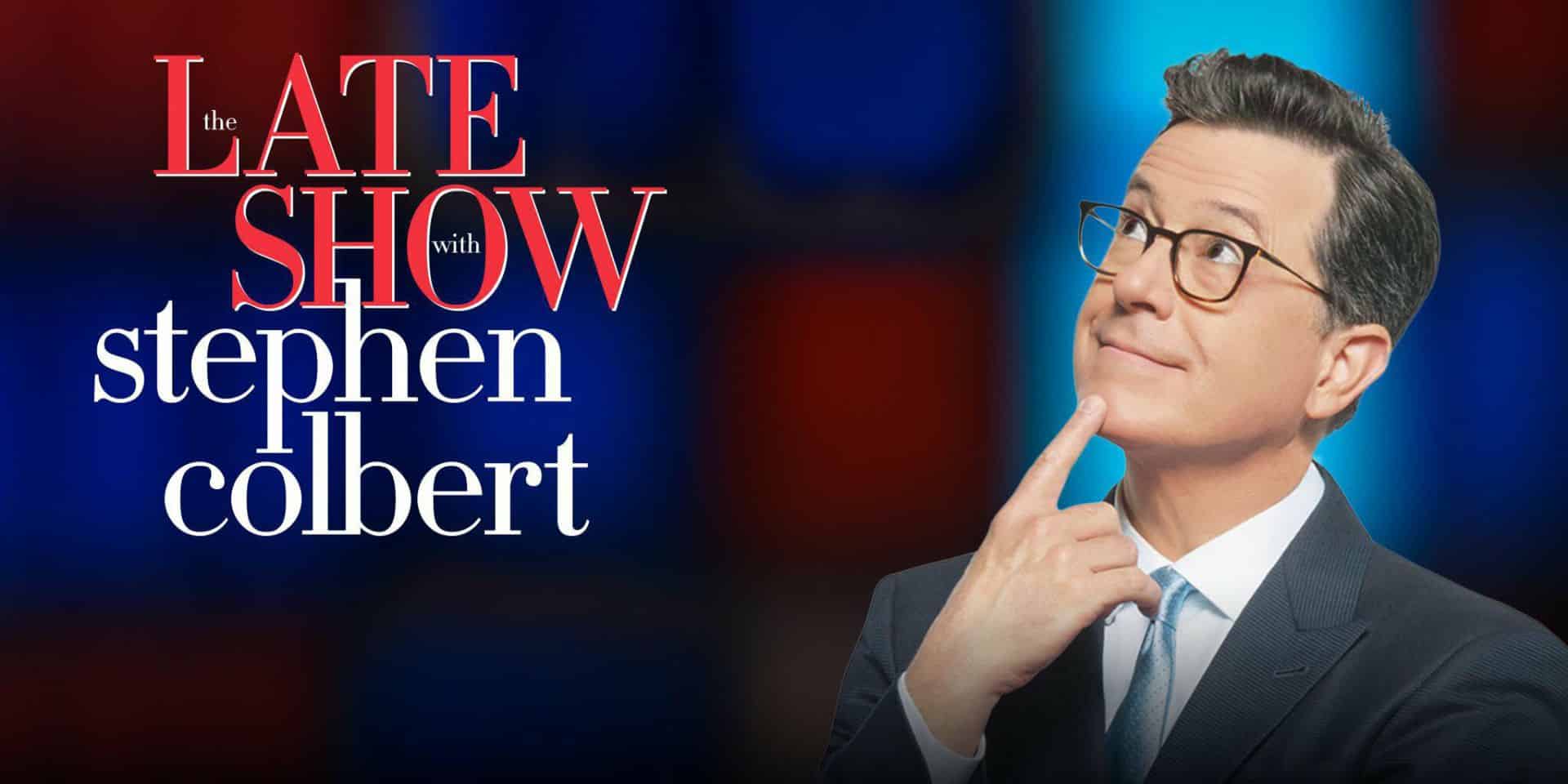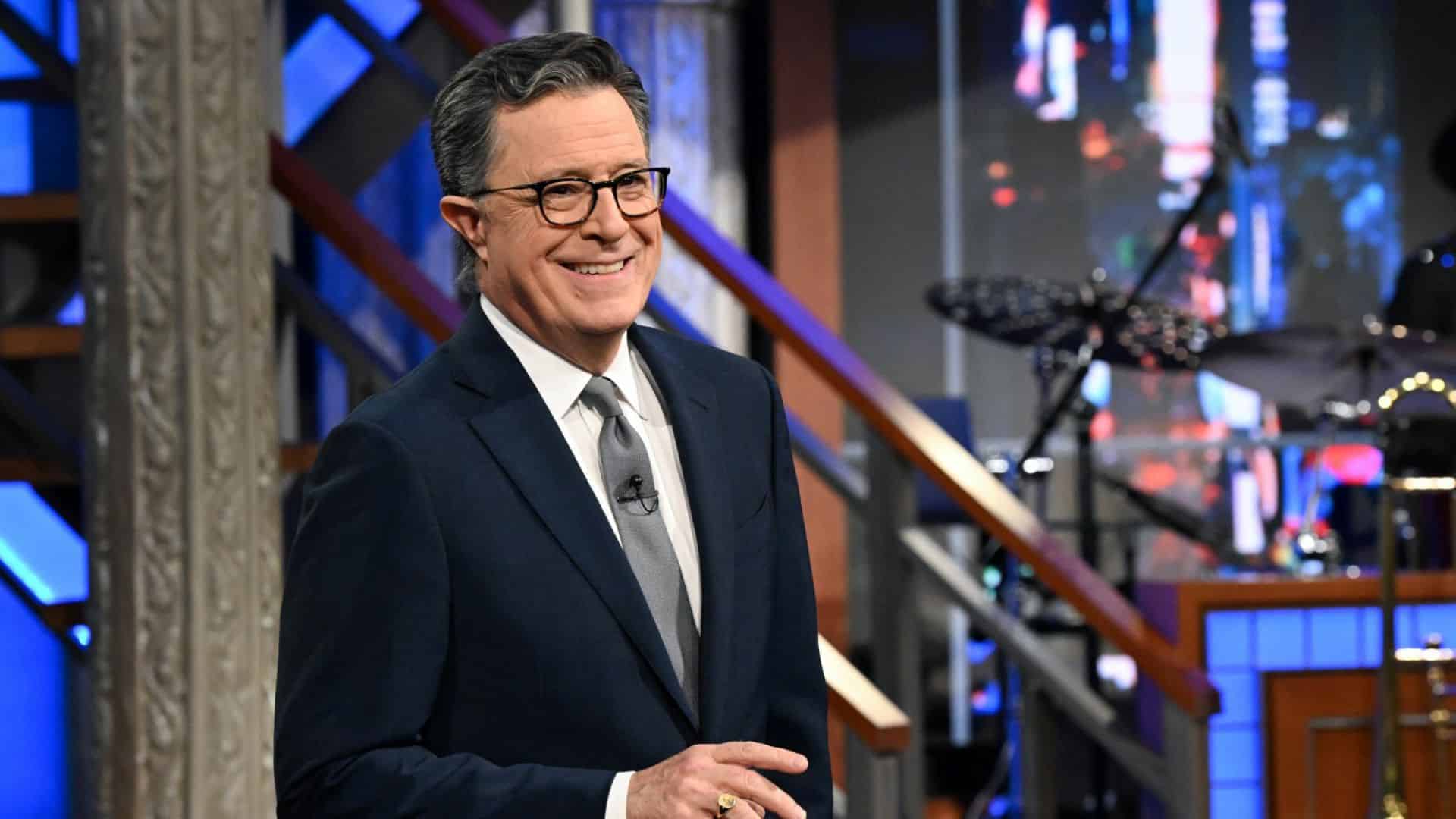For nearly a decade, The Late Show with Stephen Colbert has been one of CBS’s crown jewels, broadcasting from the iconic Ed Sullivan Theater and attracting millions of viewers with Colbert’s sharp political satire. Since taking over from David Letterman in 2015, Colbert became a cultural force, often sparring—at least in the ratings—with Jimmy Fallon, Jimmy Kimmel, and Seth Meyers, while John Oliver carved out his own satirical empire on HBO.
That’s fact. But what happened this summer has blurred the line between reality and a story straight out of Hollywood.
The Shock Heard Around TV
On July 22, CBS announced it would end The Late Show with Stephen Colbert in May 2026, citing financial concerns and a “strategic shift in late-night programming.” Executives pointed to shrinking ad revenue and high production costs.
But controversy exploded after reports suggested Colbert’s recent monologue—where he mocked a $16 million deal between CBS/Paramount and Donald Trump—may have hastened the decision. Colbert himself fanned the flames, declaring on-air: “The gloves are off.”
This much is real, confirmed by CBS and widely covered in the press.
The Fiction Becomes Too Believable
Yet in the hours after the cancellation news, an extraordinary rumor began spreading: that late-night’s fiercest rivals—Fallon, Kimmel, Meyers, Oliver—were planning something bigger than statements of support.
In this version of events, Jimmy Fallon opened his show not with jokes, but solidarity: “Tonight I’m not here to compete. I’m here to stand with Stephen.”
Jimmy Kimmel cut his vacation short, telling viewers: “Colbert spoke truth to power, and now he’s paying the price.”
Seth Meyers teased a special joint monologue written for “Monday night.”
And John Oliver, ever blunt, told his HBO audience: “This isn’t just about Stephen. It’s about whether satire survives.”
None of this has been confirmed. But the story went viral, flooding social media under hashtags like #StandWithColbert and #LateNightRevolt.
Monday Night: The Imagined Showdown

Insiders whispered of a historic broadcast: Fallon, Kimmel, Meyers, and Oliver sharing the stage at the Ed Sullivan Theater, the very home of The Late Show.
The supposed format? No script. No censors. No corporate oversight. Just four comedians speaking raw truth about comedy, censorship, and the silencing of one of their own.
Critics dubbed it “The Late-Night Summit.” Industry blogs speculated it could “reshape the comedy landscape” or even “spark a revolution in television.”
Did it really happen? No. But the speculation alone fueled the idea that late-night could transform from rival shows into a united front.
What’s Actually Happening at CBS
Behind the fiction lies a very real crisis. Multiple outlets have reported division inside CBS: some executives believed Colbert’s outspoken politics were an asset, while others considered him a liability in a polarized climate. Advertisers, nervous about backlash, are reportedly reconsidering their commitments.
Meanwhile, Colbert’s colleagues truly have rallied behind him—not in a joint broadcast, but through public statements, cameos, and on-air tributes. Fallon, Meyers, and Jon Stewart all appeared in a Colbert episode after the cancellation announcement, showing visible solidarity.
And let’s not forget: back in 2023, these same hosts—Colbert, Fallon, Kimmel, Meyers, Oliver—really did unite once before in a podcast called Strike Force Five, created during the Writers Guild strike to support their staff.

Comedy at a Crossroads
So here we are, caught between fact and fiction. The fact: Colbert’s show is ending in 2026, amid rumors of corporate pressure and political influence. The fiction: a one-night “rebellion” where his rivals unite onstage in protest.
But maybe the fiction reveals something deeper: audiences long for late-night TV to be more than corporate comfort food. They want satire that stings, comedy that risks, hosts who stand together rather than play safe.
“Late-night has always been about saying what others can’t,” says comedy historian Linda Perez. “Whether this rumored ‘summit’ is real or not, the desire behind it is very real.”
The Punchline That Matters
Reality: Stephen Colbert’s departure from CBS marks the end of an era.
Fiction: A historic late-night uprising to fight for him.
Truth: The battle over comedy’s soul—and its freedom—has only just begun.